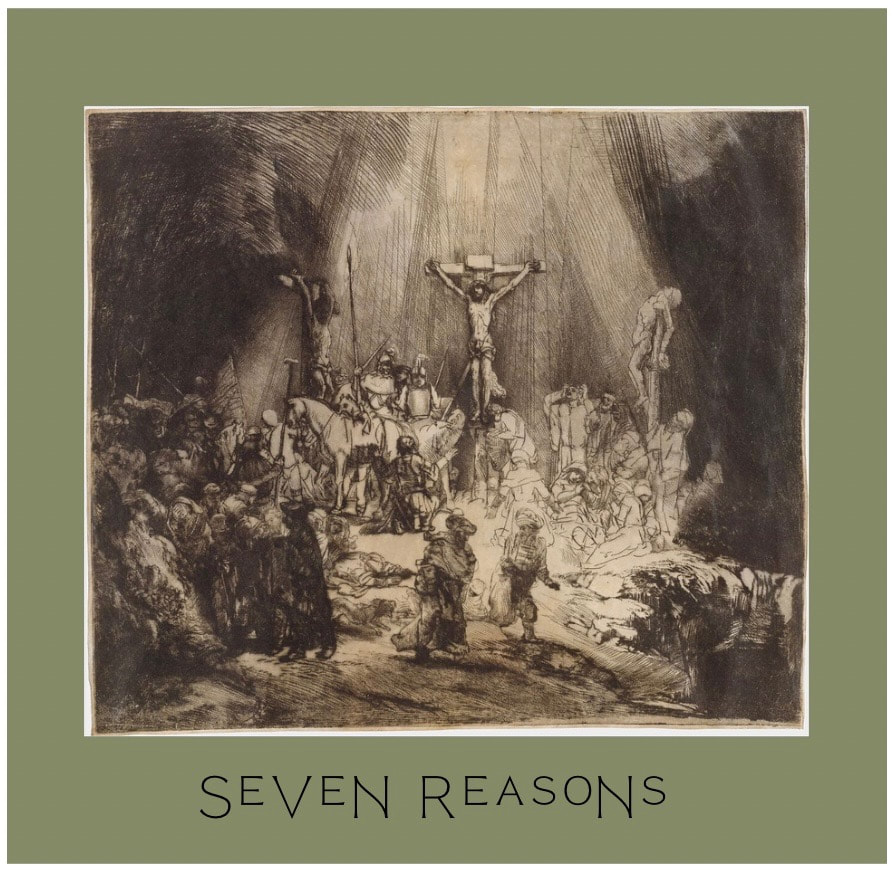|
To Propitiate God’s Wrath.
Have you ever wondered where Christians got the words “saved” from? It’s a word that we use all the time but never really define. We all just sort of understand that being saved is a good thing, but in order to really know how good it is, we should ask the question saved from what? There are a couple good answers to this question. One possible answer is being saved from our sins. This is a good answer, as it is true that our sin is a big problem and the main source of pain and suffering in our world. Jesus died so that we could be changed into people that sin less. By doing so, we lead the lives that are more in conformity to how God designed us to live. But is that all Jesus did? Did Jesus come to die merely to make our lives better? No. So maybe there is a better answer to this question. Maybe the best answer is that Jesus died to save us from hell! Ah, now we are starting to get into something more profound. Hell is a place of eternal, conscious torment. It is a place separated from all good forever, a place of pain, loneliness and despair that can never be relieved. Surely, this is something that we can all be quite grateful to Jesus for, deliverance from eternal pain. This is getting much closer to a precise question, but there is one more step, I think, that we need to take. R.C. Sproul once asked the question we are wrestling with on this post. He did make one profound change to it. Instead of asking, “Saved from what?” he asked, “Saved from Whom?” R.C. concludes that Jesus is actually saving us from God’s wrath. It is God who saves us from God. One can base this assertion from Jesus’ own words in Matthew 10:28: “And do not fear those who kill the body but cannot kill the soul. Rather fear him who can destroy both soul and body in hell” (ESV, emphasis mine). Notice that Jesus doesn’t even point to fearing of destruction but fearing the one who can destroy. Now, this might have you scratching your heads. “Wait a minute,” you may be thinking, “I thought the Bible says that God loved the world so much He sent His Son. It sounds like you are saying, ‘God hated the world so much that His Son had to save us!’” That is a very good question. Because you are right—God does love us very much as John 3:16 rightly declares. It is also true that God sent Jesus to die for us, and that was no less an act of love for us for the Father as it was for the Son. What makes this love so amazing is the fact that God saves us and loves us even though we have deeply offended Him. Can you imagine what it feels like to have a child of yours commit a heinous crime? At one level, there is disgust that someone you loved and raised would do something horrible, and yet at the same time they are your child and love them deeply. In fact, it is because you love them so deeply that one feels the disgust over their heinous actions all the more. To take it even a step further, imagine that you have to look at that child and be the judge in their court case? I think this might be the feeling Jesus describes in Matthew 23:37: “O Jerusalem, Jerusalem, the city that kills the prophets and stones those who are sent to it! How often would I have gathered your children together as a hen gathers her brood under her wings, and you were not willing!” But unlike a human parent who can only feel the pain of a child’s sin, God does something profound with it. Instead of simply resigning all of humanity to judgement, God leaves the bench and pays the penalty Himself. He maintains His justice and His mercy all at the same time. Jesus died so that He doesn’t have to pour out His justly deserved wrath on humanity. This is what the word "propitiate" means. Jesus died and turned away God's just response to sin so that He could respond in mercy. God can't just sweep our sins under the rug—that wouldn't satisfy God's justice, His wrath against sin. But by dying, Jesus makes it possible that He would only ever have to respond in love and mercy to His elect.
0 Comments
Leave a Reply. |
AuthorThis is where our Pastor posts weekly sermon manuscripts and other writings. Archives
June 2024
Categories |



 RSS Feed
RSS Feed